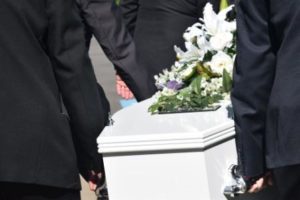Losing a loved one is always difficult emotionally, but if someone else is responsible for the death because they were negligent or reckless, you are probably feeling a level of anger as well. It should be some comfort to know that your family may be entitled to compensation under state law. Although money will not replace a loved one, it helps keep the family’s finances stable and is some comfort during this difficult period.
If your loved one’s situation met the criteria for a civil personal injury case based on negligence, or the injurious act was intentional, the family is eligible to file a wrongful death lawsuit. To learn more about how our caring, results-oriented Chicago wrongful death lawyers can help you, call for a free consultation now.
Both the Illinois Wrongful Death Act (740 ILCS 180) and the Illinois Survival Act (755 ILCS 5/27-6) apply in cases where a loved one’s death is caused by another person’s negligence or wrongful act. The Wrongful Death Act allows family members to recover damages they personally suffer because of their loved one’s death. These damages can be for the wages that the decedent contributed to the household, and the emotional trauma that spouses and children experience.
The Illinois Survival Act permits families to receive compensation for the losses the decedent would have been entitled to through a personal injury lawsuit. The family establishes an estate that serves as an extension of the decedent and is entitled to collect compensation for medical bills, lost wages, property damage, pain and suffering, and other losses. A wrongful death lawyer could help a Chicago family set up the best way to secure this compensation.

Families of those who die because of a wrongful act can rely on both the Wrongful Death Act and Survival Act simultaneously. Common examples leading to these types of claims include:
Compensation recovered under the Wrongful Death Act is distributed by the court to the decedent’s spouse and children, or (if those heirs do not exist) to parents, siblings, and grandparents. Personal representatives can collect compensation if there are no heirs, and they suffer financially. Compensation recovered under the Survival Act flows to the estate.
There are slight differences in the timeline for filing a claim under the two wrongful death acts. Under both acts, heirs have two years to file a claim. However, the Wrongful Death Act begins the two-year time limit at the time of death, while the Survival Act limit begins at the time the original injury occurred.
The statute is extended to five years under both acts if the original incident is a violent or intentional crime. Chicago wrongful death attorneys guide family members through the process, including filing claims on time.
Our attorneys at McCready Law understand the range of emotions you are feeling right now. Our practice is dedicated to alleviating the financial burdens that an untimely death imposes on families by spearheading negotiations and civil actions to win compensation.
We painstakingly comb through evidence, including law enforcement and medical reports, talk to eyewitnesses, review security footage, and determine how much compensation a family is entitled to receive. We are aggressive enough to consistently get solid results after listening to what our clients need. If you would like to learn how we can help you, contact a Chicago wrongful death lawyer today.